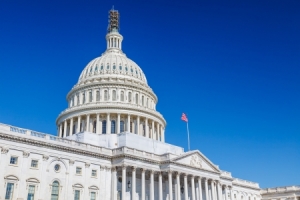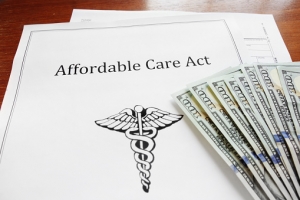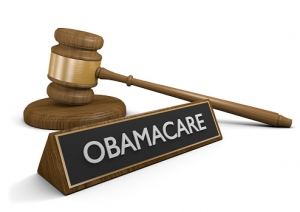President
Posted April 5th, 2017 in Producers, Employers, Individuals
You’ve all heard by now that Congress was unsuccessful in passing the American Health Care Act (AHCA), a bill that was intended to repeal and replace significant parts of the Affordable Care Act (ACA). Surely, within time, there will be another bill introduced to change the ACA, but that could take time. It may be weeks, months, or maybe even not until next year, although President Donald Trump does have a “wild card” he can use.
Posted January 13th, 2017 in Producers, Employers, Individuals
Nothing has changed yet. Nothing will change until after Donald Trump is sworn in as President on January 20th.
Flexible Benefit Service LLC (Flex) is excited to tell you about the 21st Century Cures Act which was signed into law by President Obama on December 13, 2016. While the law primarily focuses on healthcare innovations and enhancing medical research, it also created a new type of Health Reimbursement Arrangement (HRA), referred to as a "Qualified Small Employer HRA."
Posted July 28th, 2016 in Producers, Employers, Individuals
There has been a lot of shake up in the recent weeks and months as it relates to health insurance options available in the individual marketplace. UnitedHealthcare (UHC) announced it would only offer individual plan options in three states next year. Humana also announced they would be limiting the number of states it offers individual plans in next year. More recently, three additional CO-OPs in Connecticut, Illinois and Oregon announced their closures by the end of the year.
Posted April 25th, 2016 in Producers, Employers, Individuals
The President of the United States can have a significant impact on the shape and direction of health care, as has been seen with President Obama and the passage of the Affordable Care Act (ACA). The American people will cast their vote for the next President of the United States on November 8, 2016. The future of the health care industry will largely be influenced by the outcome of the election. Here is a very high level summary on how the presidential candidates have suggested they would change the health care industry:
Donald Trump
Posted December 23rd, 2015 in Producers, Employers, Individuals
You may have heard that President Obama recently signed into law the Consolidated Appropriations Act of 2016, a $1.1 trillion spending bill, avoiding a shutdown and funding the federal government through September 30, 2016. The President also signed the Protecting Americans from Tax Hikes (PATH) Act of 2015 which provides nearly $700 billion in tax breaks. Here’s what it means to the Affordable Care Act (ACA) and transit reimbursement plans.
Cadillac Tax
- The Cadillac Tax has been delayed by two years until 2020.
Posted December 4th, 2015 in Producers, Employers, Individuals
The Senate needed 51 votes to pass the Restoring Americans' Healthcare Freedom Reconciliation Act of 2015 (HR 3762), a budget reconciliation bill which would repeal several key parts of the Affordable Care Act (ACA). They got 52 when they voted on December 3rd. The bill, which was previously passed by the House of Representatives (House), was approved by the Senate with some amendments. That means the bill will have to go back to the House for another vote, where most expect it will be passed.
Posted June 5th, 2015 in Producers, Employers, Individuals
The Supreme Court is expected to rule on the King vs. Burwell case at the end of this month. This is the court case that is challenging whether or not the federal government can provide subsidies to Exchange enrollees in the 37 states in which it operates. Media coverage of the case implies that the judges are evenly split and a ruling could go either way.
Posted April 17th, 2015 in Producers, Employers, Individuals
Since 1997, the federal government has used a system referred to as the Sustainable Growth Rate (SGR) to pay doctors that participate in the Medicare program. The SGR has aimed to slow increasing costs related to Medicare by limiting and reducing payments to doctors. However, the SGR has seen a lot of backlash from doctors, with many indicating they would not participate in the Medicare program if payments were reduced.









